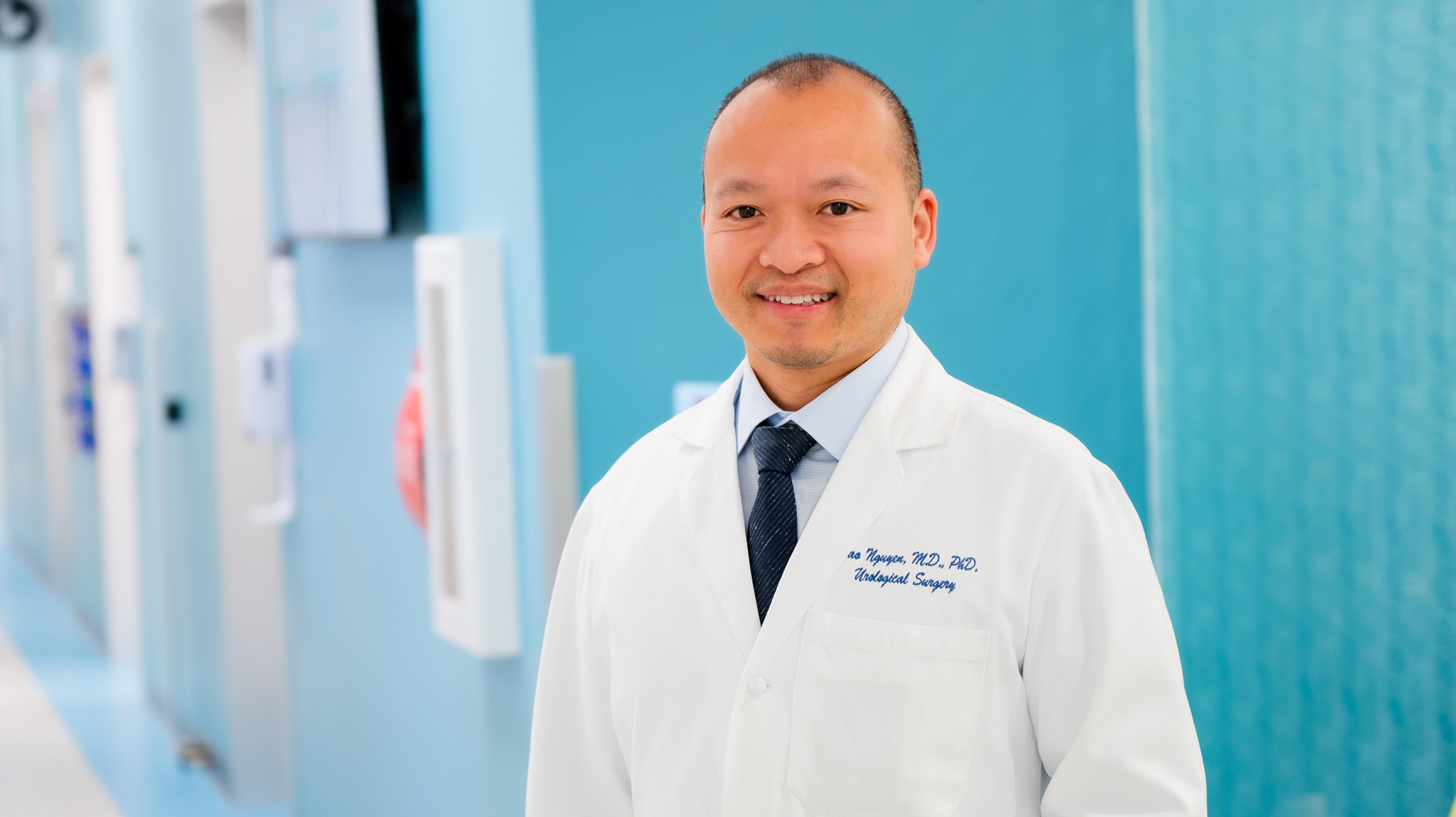Submitted on March 16, 2020

In January, Hao Nguyen, MD, PhD, was awarded a $1 million Challenge Award from the Prostate Cancer Foundation (PCF). Nguyen, 44, who holds the Goldberg-Benioff Endowed Professorship in Cancer Biology and is associate professor in UCSF’s Department of Urology, will use the funding over the course of the next two years to search for “novel therapeutic means to understanding metastatic prostate cancer,” he says. Co-PIs on the project are Peter R. Carroll, MD, MPH, Ken and Donna Derr-Chevron Distinguished Professor in Urology and Taub Family Distinguished Professor in Urology Department of Urology; and urology professor Davide Ruggero, PhD, a Helen Diller Family Endowed Chair in basic science research. Dr. Ruggero is a world-renowned expert in the role of deregulation of protein synthesis in cancer development.
Says Carroll, “Hao’s work is critical to advancing our understanding of how to reduce the burden of treatment and delay progressions of metastatic prostate cancer, which leads to 30,000 fatalities in men in the U.S. every year.”
Nguyen’s is one of four teams this year to win what is one of PCF’s largest grants, which specifically seeks to address high-risk, underfunded research in metastatic, lethal prostate cancer—the second leading cause of cancer deaths in American men after lung cancer. With his focus on “bridging the gap between the patient I see in the clinic every day, whose cancer may have metastasized to the bone or the lymph node and where surgery has a limited role, and the bench,” Nguyen says, this grant is doubly prestigious due to the rarity with which surgeon scientists receive it. “Surgeons are busy, clinicians are busy, scientists are busy, so nobody is figuring out how to advance the discoveries we’re making in the lab closer to the patient; that’s our goal.”
To achieve it, and hopefully hit on a novel therapy to bring to clinical trial by 2022, Nguyen will study the process of how protein binds to RNA, which allows the translation initiation of specific prostate-cancer-related genes and allows them to grow. “That protein has been considered largely un-druggable, because normal cells use it, too, and targeting it would be deleterious to them,” Nguyen says. However, previous studies in their lab on up-regulating cancer cell pathways have shown that “if we target them only to a certain level, but don’t completely knock them out, this will only be lethal to the cancer cell; it’s a good therapeutic window.”
“PCF’s recognition of the crucial role of surgeon-scientists is very positive and certainly well-deserved in Dr. Nguyen’s case,” says UCSF Department of Urology Professor Raj S. Pruthi, MD, MHS, FACS. “His contribution to the study of metastatic prostate cancer helps to ensure much more positive outcomes for those suffering from this disease.”